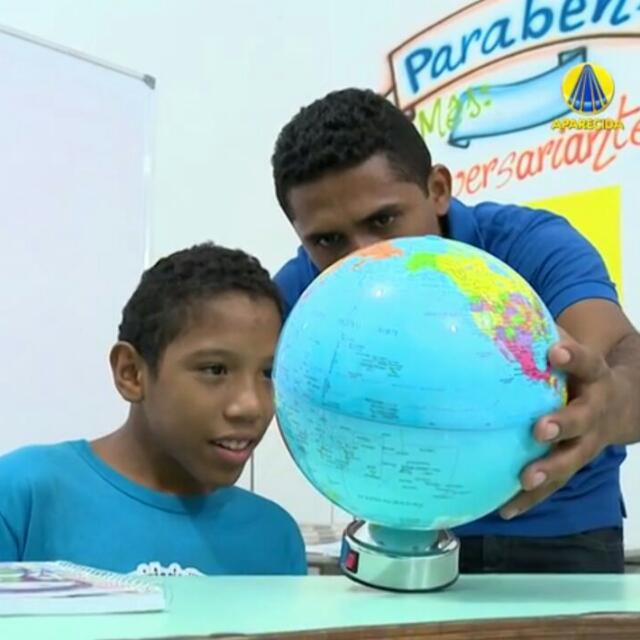
Feb 1, 2017 | Non categorizzato
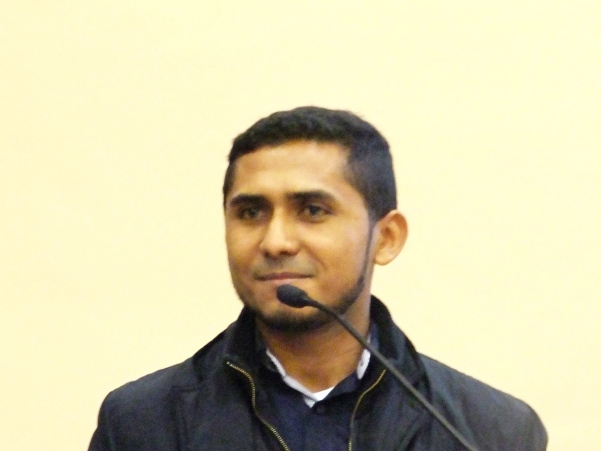 Brazil is a land of contradictions, the emblem of joy, hospitality, folklore, music, pristine nature, beaches, luxorious forests and metropolises oon the one hand. But on the other, like many countries in the world, Brazil is a land of contrasts, criminality and social inequality. Drug traffiking in the city represents a real wound on society that inevitably leads to armed conflicts. In addition, the murder rate among women is high, prostitution, lack of health care, child labour, low level of education, and the spread of slave labour generates high levels of inenquality as in the favellas and in the outlying districts of big cities. Health care and education are not garunteed and young people can’t look forward to an education and a job. Few escape the clutches of cime, thanks mostly to a few public policies and the work of social aid organizations such as parishes and Christian church groups that are really the only ones who have the fate of the poor at heart. Even in my own city with its 800,000 citizens, children between the ages of 13 and 17 have been mudered because of their involvement with drugs. My desire to love my neighbor, to give myself especially to the people that have been rejected by society, led me to be involved for five years, in the spirit of the Focolare, with a social project years in the diocese of Teresina: “The New Youth Community Centre.”
Brazil is a land of contradictions, the emblem of joy, hospitality, folklore, music, pristine nature, beaches, luxorious forests and metropolises oon the one hand. But on the other, like many countries in the world, Brazil is a land of contrasts, criminality and social inequality. Drug traffiking in the city represents a real wound on society that inevitably leads to armed conflicts. In addition, the murder rate among women is high, prostitution, lack of health care, child labour, low level of education, and the spread of slave labour generates high levels of inenquality as in the favellas and in the outlying districts of big cities. Health care and education are not garunteed and young people can’t look forward to an education and a job. Few escape the clutches of cime, thanks mostly to a few public policies and the work of social aid organizations such as parishes and Christian church groups that are really the only ones who have the fate of the poor at heart. Even in my own city with its 800,000 citizens, children between the ages of 13 and 17 have been mudered because of their involvement with drugs. My desire to love my neighbor, to give myself especially to the people that have been rejected by society, led me to be involved for five years, in the spirit of the Focolare, with a social project years in the diocese of Teresina: “The New Youth Community Centre.”  The project, which is geared towards at-risk children and teenagers, tries to provide alternative opportunities. Eighty children and teenagers (betweeen the ages of 5 and 17) attend music, dance and theatre classes. They receive tutoring and are provided with hot meals, since they often don’t find food in their homes. Their lives change when they come into contact with people who welcome and care for them. I also tried to be involved, listening to many young people who have shared their suffering with me. One boy told me about his drug problem and asked me to help him out of the tunnel. Another told me how he steals in order to get money. We often involve the professionals who work there, such as psychologists and social workers. Now many of the children are grown, they study and have found honest work. Others continue to arrive in search of an opportunity at a better life, of being loved and cared for. One of them who had been abandoned by his father, called me “Dad” and so I took on this role One boy had suffered various forms of violence and neglect. We found a way to channel his energy, by introducing him to judo, and that changed him for the better. He became a source of pride for all of us who had helped him. But one day he didn’t show up at the centre. We learned that he had become involved in some ugly ways and, one day, as he sat in front of his house was murdered. He had just turned 15. It was a big suffering for all of us, also for me because of the friendship we had built. Many other teenagers suffer the same fate. The project foresees also moments of training for educators and young people, according to the Chiara Lubich‘s spirituality, with monthly meetings of the Word of Life. What I got out of this experience is that continuity is required for recovering these boys, working in synchrony with the State, public institutions of education and health, with civil society, and with the church. To win this challenge we need to create networks and dialogue at every level: personal, group, community, all the way to the highest levels of society. But it all begins with me, moving beyond myself and going out to encounter the many peripheries. We’ve already begun.
The project, which is geared towards at-risk children and teenagers, tries to provide alternative opportunities. Eighty children and teenagers (betweeen the ages of 5 and 17) attend music, dance and theatre classes. They receive tutoring and are provided with hot meals, since they often don’t find food in their homes. Their lives change when they come into contact with people who welcome and care for them. I also tried to be involved, listening to many young people who have shared their suffering with me. One boy told me about his drug problem and asked me to help him out of the tunnel. Another told me how he steals in order to get money. We often involve the professionals who work there, such as psychologists and social workers. Now many of the children are grown, they study and have found honest work. Others continue to arrive in search of an opportunity at a better life, of being loved and cared for. One of them who had been abandoned by his father, called me “Dad” and so I took on this role One boy had suffered various forms of violence and neglect. We found a way to channel his energy, by introducing him to judo, and that changed him for the better. He became a source of pride for all of us who had helped him. But one day he didn’t show up at the centre. We learned that he had become involved in some ugly ways and, one day, as he sat in front of his house was murdered. He had just turned 15. It was a big suffering for all of us, also for me because of the friendship we had built. Many other teenagers suffer the same fate. The project foresees also moments of training for educators and young people, according to the Chiara Lubich‘s spirituality, with monthly meetings of the Word of Life. What I got out of this experience is that continuity is required for recovering these boys, working in synchrony with the State, public institutions of education and health, with civil society, and with the church. To win this challenge we need to create networks and dialogue at every level: personal, group, community, all the way to the highest levels of society. But it all begins with me, moving beyond myself and going out to encounter the many peripheries. We’ve already begun.
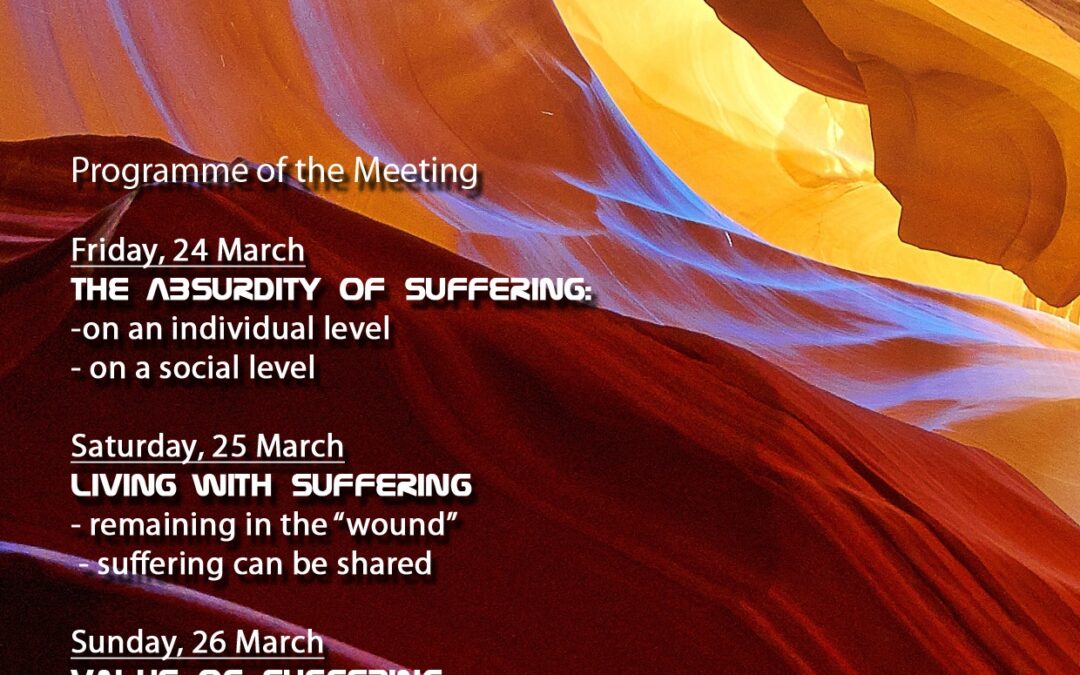
Jan 30, 2017 | Non categorizzato
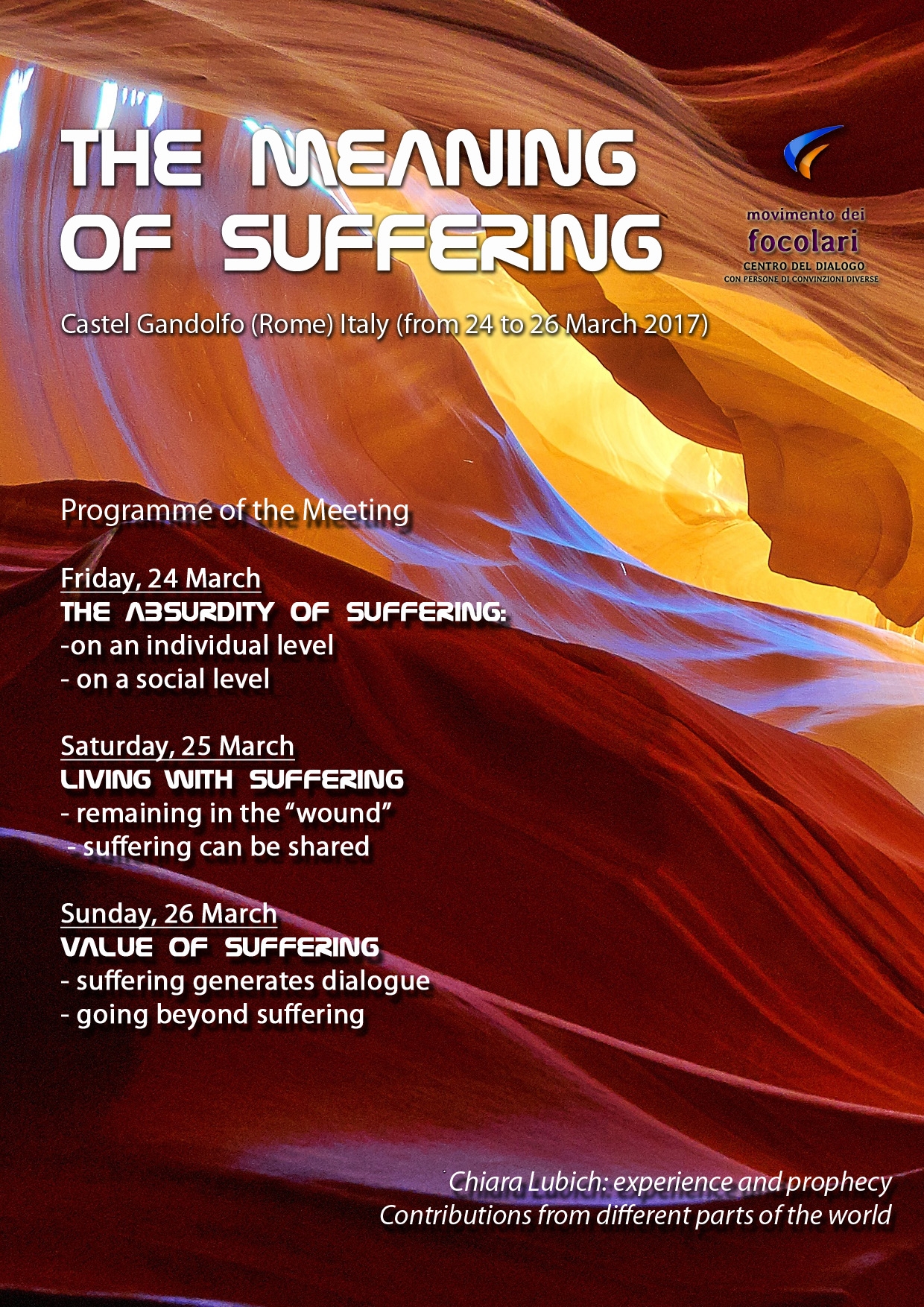 The program will focus on these themes: The absurdity of suffering on an individual and social level Living with suffering The value of suffering There will be input from various geographic regions and from various disciplines: psychology, medicine, philosophy, art, through personal experiences given by people of different age-groups. Bookings can be made through the Centre for Dialogue with Persons of no Religious Affiliation Focolare Movement, Via Frascati 306, 00040 Rocca di Papa (Rome), Italy Email: centrodialogo@focolare.org Tel: +39 06 94798-343
The program will focus on these themes: The absurdity of suffering on an individual and social level Living with suffering The value of suffering There will be input from various geographic regions and from various disciplines: psychology, medicine, philosophy, art, through personal experiences given by people of different age-groups. Bookings can be made through the Centre for Dialogue with Persons of no Religious Affiliation Focolare Movement, Via Frascati 306, 00040 Rocca di Papa (Rome), Italy Email: centrodialogo@focolare.org Tel: +39 06 94798-343
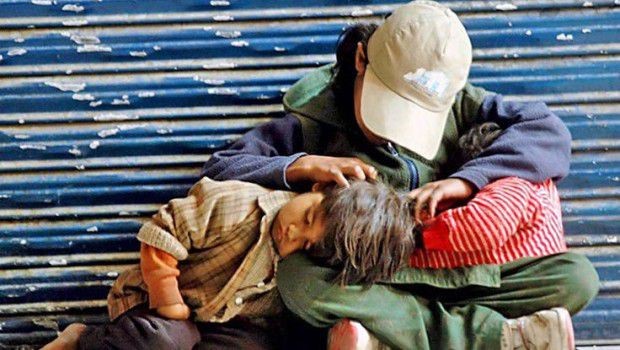
Jan 30, 2017 | Non categorizzato
Eight people own as much as the poorest half of the world’s population. This is what Oxfam Report 2017 says. Runaway inequality is condemning hundreds of millions of people to poverty and highlighting the iniquity of the current economic system. In this complex situation, the Economy of Communion may be considered as a prophetic sign. It originated in May 1991, in Brazil as a reaction to the scandalous situation of the favelas that surround the city of San Paolo. Chiara Lubich invited a first group of entrepreneurs to set up businesses that follow the market laws and produce profits “which would be freely put in common”. Its aim is to help the poor, create jobs and promote the culture of giving as an alternative to the culture of having.  Since then, 25 years have passed. And on Saturday, February 4, 2017, 1100 people involved in the Economy of Communion (EoC) will meet Pope Francis at Paul VI Hall. The majority of them are entrepreneurs, men and women, who chose communion as away of life, personally and also in the running of their businesses. They will be joined by students, scholars and professors, who, through research and academic activity, aim at laying a theoratical foundation to the inspiration economy/communion . These participants come from different countries and various backgrounds, and this shows that the EoC can establish itself in any geographical and cultural environment, rich and poor. Many participants will come from the continent of Asia: China, Korea, the Philippines, Hong Kong, India, Malaysia, Singapore, Thailand and Vietnam. Africa will be presented by participants from Burkina Faso, Burundi, Cameroon, Ivory Coast, Ethiopia, Uganda, Nigeria and the Democratic Republic of Congo. Entrepreneurs from North and South America will come from 11 different countries, namely, Argentina, Bolivia, Brazil, Canada, Chile, Cuba, Mexico, Panama, Paraguay, Uruguay and USA. European participants are many and they come from 20 different countries. Oceania will be present with Australia. Maria Voce, the president of the Focolare Movement together its General Council will also be present. These participants want, first of all, to thank Pope Francis for his teachings and actions that highlight the dignity of the poor and the excluded. At the same time, this assembly would like to present to the Pope some fruits of the EoC, that has been facing challenges and crises that afflict the world since its very start. Today, the EoC animates industrial parks in Europe and Latin America, generates a life of communion in more than eight hundred companies, helps several thousands of people in need and sees to the education of their children, develops a cultural reflection that contributes towards rethinking about economic practices such as reciprocity, gift, gratuity and the idea of market. New projects are also being carried out:
Since then, 25 years have passed. And on Saturday, February 4, 2017, 1100 people involved in the Economy of Communion (EoC) will meet Pope Francis at Paul VI Hall. The majority of them are entrepreneurs, men and women, who chose communion as away of life, personally and also in the running of their businesses. They will be joined by students, scholars and professors, who, through research and academic activity, aim at laying a theoratical foundation to the inspiration economy/communion . These participants come from different countries and various backgrounds, and this shows that the EoC can establish itself in any geographical and cultural environment, rich and poor. Many participants will come from the continent of Asia: China, Korea, the Philippines, Hong Kong, India, Malaysia, Singapore, Thailand and Vietnam. Africa will be presented by participants from Burkina Faso, Burundi, Cameroon, Ivory Coast, Ethiopia, Uganda, Nigeria and the Democratic Republic of Congo. Entrepreneurs from North and South America will come from 11 different countries, namely, Argentina, Bolivia, Brazil, Canada, Chile, Cuba, Mexico, Panama, Paraguay, Uruguay and USA. European participants are many and they come from 20 different countries. Oceania will be present with Australia. Maria Voce, the president of the Focolare Movement together its General Council will also be present. These participants want, first of all, to thank Pope Francis for his teachings and actions that highlight the dignity of the poor and the excluded. At the same time, this assembly would like to present to the Pope some fruits of the EoC, that has been facing challenges and crises that afflict the world since its very start. Today, the EoC animates industrial parks in Europe and Latin America, generates a life of communion in more than eight hundred companies, helps several thousands of people in need and sees to the education of their children, develops a cultural reflection that contributes towards rethinking about economic practices such as reciprocity, gift, gratuity and the idea of market. New projects are also being carried out:
- an international network (Economy of Communion Incubating International Network – EOC-IIN) with hubs in industrial parks (and also in other places) to support young entrepreneurs. These hubs are already functioning in Cameroon, Portugal, Croatia, Mexico and Brazil. 100 young people living in vulnerable situations are being trained through a successfully run partnership in which social and civil economy organizations are involved. Workshops are currently taking place in Portugal and Mexico to train youth in an entrepreneurship “of communion”. Collaboration with academic institutions is also present as, e.g. with the University of Puebla (Mexico) for the development of projects for an indigenous community.
- An Observatory on Poverty that gathers information about the best practices in the struggle against poverty and develops an approach inspired by the values of communion and reciprocity.
These and other topics will be dealt with during the three working conferences to be held from 1-5 February at the Mariapolis Centre of Castelgandolfo (Rome). Tracks and projects for 2018-2020 will be defined. “If we decide to look at the world with the poor and the discarded” says Luigino Bruni, economist and international coordinator of the Economy of Communion, “we cannot stay on the pedestal; we have to come down and be with the victims, we have to fight for them, fight with them. In return, we will get new eyes, we will see things others do not see; sometimes we see horrible things; other times we see things of infinite beauty. The EoC has been doing this for 25 years. If it wants to survive, it must keep on doing it every day, better and more”. Press release Edc online
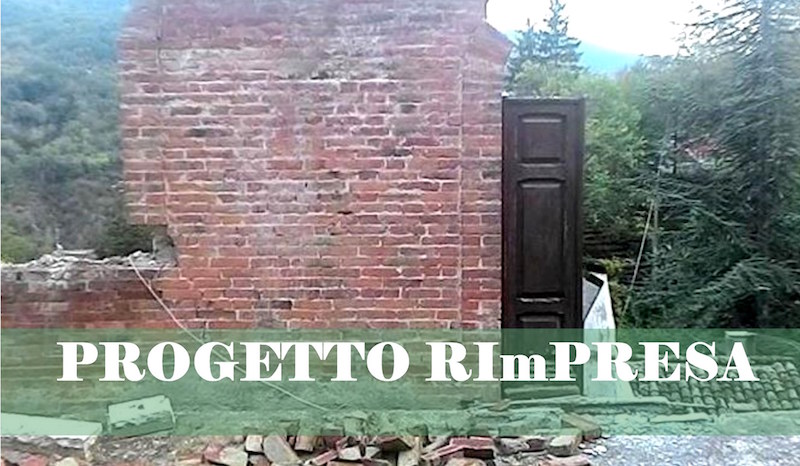
Jan 30, 2017 | Non categorizzato
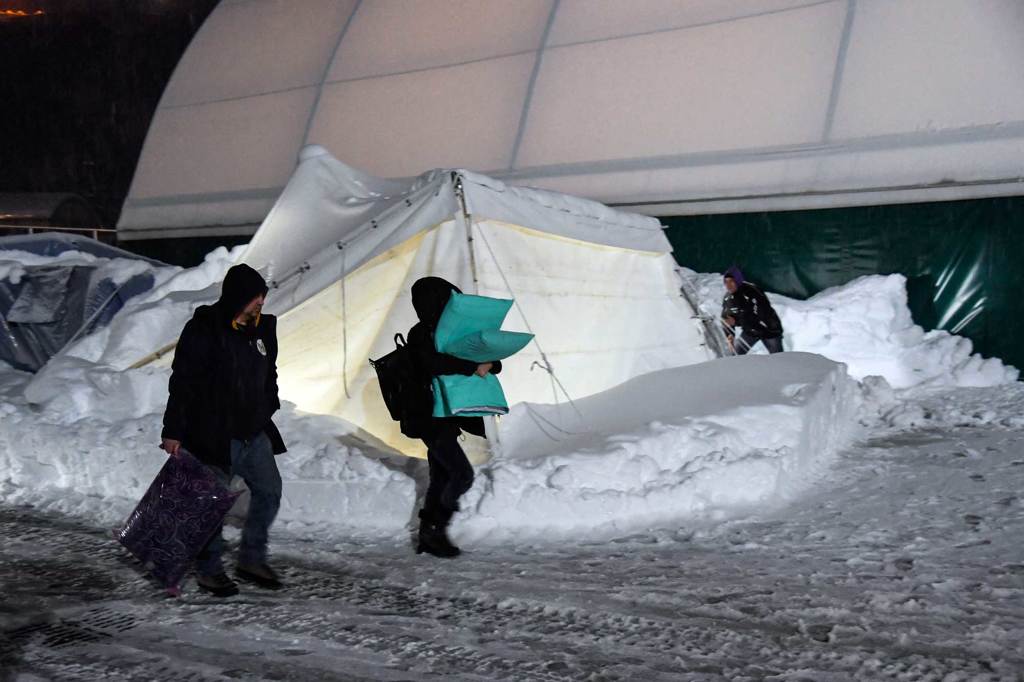 “It’s like being in a war. There are police, civil protection agencies, the Red Cross, and so on. Last night we had supper with a family of six, whose sons are boys scouts with our son. Their house is damaged and their sleeping under the canopy. Our family has grown, but also our hearts. From a tank of gas for those who were without energy to shovelling out a neighbour after the snowfall, we are having an experience of brotherhood. Up until ysterday we were among the ones asking for help. Then the lights came on and we turned out attention towards those who are in need. At the end of our lives we won’t be asked whether we were believers, but whether we were credible!” These are the reports coming to us from our friends that were hit by the latest earthquake which, since last August 24th has been shaking Italy, which is now covered in a thick blanket of snow. The earthquakes have been followed by other earthquakes that have caused avalanches, landslides and loss of life. That was the case for the fire fighters who raced to the hotel that was buried in snow, or the civil volunteers who are here from alll over Italy. The RImPresa Project is also focusing on a particular aspect of the seemingly endless emergency, that is, the support network that for several months has been providing logistical support along the ancient Salaria way, to many small rural centres whose economies are based mainly on agriculture raising livestock.
“It’s like being in a war. There are police, civil protection agencies, the Red Cross, and so on. Last night we had supper with a family of six, whose sons are boys scouts with our son. Their house is damaged and their sleeping under the canopy. Our family has grown, but also our hearts. From a tank of gas for those who were without energy to shovelling out a neighbour after the snowfall, we are having an experience of brotherhood. Up until ysterday we were among the ones asking for help. Then the lights came on and we turned out attention towards those who are in need. At the end of our lives we won’t be asked whether we were believers, but whether we were credible!” These are the reports coming to us from our friends that were hit by the latest earthquake which, since last August 24th has been shaking Italy, which is now covered in a thick blanket of snow. The earthquakes have been followed by other earthquakes that have caused avalanches, landslides and loss of life. That was the case for the fire fighters who raced to the hotel that was buried in snow, or the civil volunteers who are here from alll over Italy. The RImPresa Project is also focusing on a particular aspect of the seemingly endless emergency, that is, the support network that for several months has been providing logistical support along the ancient Salaria way, to many small rural centres whose economies are based mainly on agriculture raising livestock.  The RImPRESA project, which is promoted by the AMU, the AIPEC Business Owners Association, AFN Onlus, Planetary Embrace, B&F Foundation and the Focolare Movement is now in full operation. There are suppliers, raw material businesses, machinery and provisional infrastructure companies, 4 (GAS) purchasing groups from other Italian cities who are all working to create a user and consumption base outside the areas affected by the earthquake. The eighty families involved so far will soon be able to buy the products from the companies through an IT platform that will send their order. The products will be delivered once a week. The intent of GAS – far from providing welfare – is to encourage a reciprocity and involvement by all the participants. The project includes the creation of a “Reciprocity Fund” from which the selected families will receive a grant for the restart of their production activities. They in turn will agree help support businesses, once the condition of their own businesses allow it. For more information: www.amu-it.eu See: Earthquake in Italy: three hours under the rubble “Toulouse for Italy” Concert Christmas among earthquake victims in Centra Italy
The RImPRESA project, which is promoted by the AMU, the AIPEC Business Owners Association, AFN Onlus, Planetary Embrace, B&F Foundation and the Focolare Movement is now in full operation. There are suppliers, raw material businesses, machinery and provisional infrastructure companies, 4 (GAS) purchasing groups from other Italian cities who are all working to create a user and consumption base outside the areas affected by the earthquake. The eighty families involved so far will soon be able to buy the products from the companies through an IT platform that will send their order. The products will be delivered once a week. The intent of GAS – far from providing welfare – is to encourage a reciprocity and involvement by all the participants. The project includes the creation of a “Reciprocity Fund” from which the selected families will receive a grant for the restart of their production activities. They in turn will agree help support businesses, once the condition of their own businesses allow it. For more information: www.amu-it.eu See: Earthquake in Italy: three hours under the rubble “Toulouse for Italy” Concert Christmas among earthquake victims in Centra Italy
Jan 28, 2017 | Non categorizzato, Word of
The word ‘heart’ makes us think of affections, feelings and passions. However, for the bible writers it meant much more. Together with the spirit, the heart is the centre both of life and of the person; it is the place where decisions are made, the place of our inner life, our spiritual life. A heart of flesh is docile to the word of God and allows itself to be guided by the word, giving rise to “peaceful thoughts” about others. Instead, a heart of stone is closed in on itself and is unable to listen or be merciful. Do we really need a new heart and a new spirit? It is enough to look around and see the violence, corruption and wars that are caused by hearts of stone which are not open to God’s plan for creation. If we look honestly within ourselves, we can see that we are often motivated by selfish wants. Does love truly guide our decisions? Are we guided by what is good for others? Seeing our impoverished humanity, God was moved to compassion. He knows us better than we know ourselves and he knows we need a new heart. He promised this to the Prophet Ezekiel, thinking not only of individuals but of all his people. God’s dream is to recreate one large family of peoples, as was his original intention, which is guided by the law of mutual love. History has often shown that while, on the one hand, we cannot fulfill God’s plan on our own, on the other He has never tired of getting involved, to the point of promising that he himself would give us a new heart and a new spirit. He kept his promise to the full when he sent his Son on earth and when he poured out his Spirit on the day of Pentecost. A community began – the first Christian community in Jerusalem – which was an icon of humankind living as “one heart and one soul”. All of us, you who are reading or listening to this commentary on the Word of Life and I who am writing it, are called to be part of this new humanity. Moreover, we are called to edify this new humanity around us, bringing it into the places where we live and work. What a great mission has been given to us and how great is God’s trust in us! Instead of feeling depressed at seeing how corrupt society seems to be; instead of resigning ourselves to evils that are bigger than us, and shutting it all out as if we were not concerned, let’s widen our hearts “according to the measure of the heart of Jesus. How much work that means! Yet this is the only thing necessary.” This is what Chiara Lubich asked us to do and she went on saying: “It means loving everyone we meet as God loves them. And since we live in time, we must love our neighbors one by one, without holding in our heart any left-over affection for the brother or sister met a moment before”. Let’s not trust in our own strength and abilities, which are inadequate, but let’s trust in God’s gift to us: “A new heart I will give you, and a new spirit I will put within you.” If we respond willingly to the call to love each person, if we allow ourselves to be guided by the voice of the Holy Spirit in us, we will become living cells of a new humanity, builders of a new world, in the great diversity of peoples and cultures. Fabio Ciardi This month we will be living this Word, which was chosen by an ecumenical group in Germany, together with brothers and sisters of various Churches, so as to let God’s promise accompany us during the whole of this year in which we are commemorating the 500th anniversary of the Reformation.
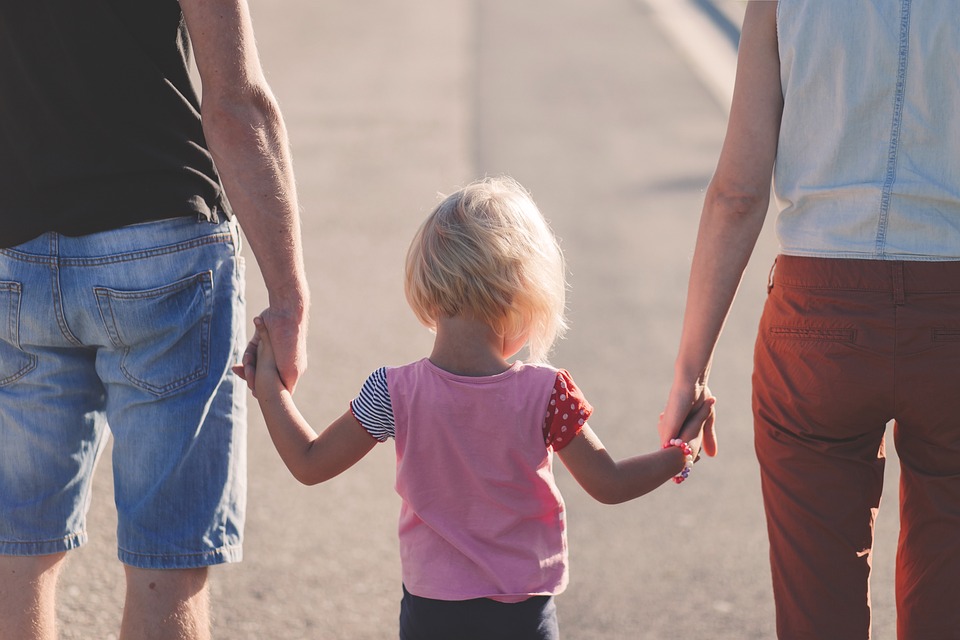
Jan 28, 2017 | Non categorizzato
 “The miracle of the house of Nazareth repeats itself in some way in every Christian home, if it ”generates” Christ among men. The Council called the family a “Domestic Church,” and Church stands for living together in love, and thus in God, a coexistence which has the Lord as its centre. Starting off from this awareness, the home – every Christian home – becomes a blossoming of new moral and physical life for society, and is also a heating system to vivify the environment. As the Council teaches us, “the physical and moral life of humanity, and even more so the real expansion of God’s Kingdom, depends on the fullness of health and spiritual life of the family.” So –Paul VI says– “through marriage and the family, God has wisely united two of the greatest human realities: the mission of transmitting life and mutual love, and the legitimacy of man and woman.” Never has a poet elevated conjugal love to such sublime heights. Here the religion of Christ is really expressed also as poetry, placing the family centrally – at the source – of sociality. There is life if there is love, the first condition of conjugal union. And if the spouses love one another, they are the «cooperators of the love of God the creator and his interpreters,» says the Council. If they know this, upon marrying each other they undertake to fulfill a mandate of regal priesthood, a great mystery as St. Paolo defined it. In loving one another they sanctify themselves and donate God who is love, and are his testimonials. If two spouses love one another, it is a sign for the people that they are really Christians and live God’s life. The old world got converted upon seeing how the Christians loved one another, starting from their homes. If they loved one another then their religion was true, and God was in them. In loving one another spouses create their happiness and build their sanctity. The home becomes a temple – Paradise. Love is the secret of the strength of families, and their concord is the solution of the trials of existence. Without love, the family and existence itself fail. So sanctity is seen to be the health of the spirit, which acts also on the physical, while it overflows like a pure wave of healing in all folds of society. So from a Christian home, the people of God ensue.”
“The miracle of the house of Nazareth repeats itself in some way in every Christian home, if it ”generates” Christ among men. The Council called the family a “Domestic Church,” and Church stands for living together in love, and thus in God, a coexistence which has the Lord as its centre. Starting off from this awareness, the home – every Christian home – becomes a blossoming of new moral and physical life for society, and is also a heating system to vivify the environment. As the Council teaches us, “the physical and moral life of humanity, and even more so the real expansion of God’s Kingdom, depends on the fullness of health and spiritual life of the family.” So –Paul VI says– “through marriage and the family, God has wisely united two of the greatest human realities: the mission of transmitting life and mutual love, and the legitimacy of man and woman.” Never has a poet elevated conjugal love to such sublime heights. Here the religion of Christ is really expressed also as poetry, placing the family centrally – at the source – of sociality. There is life if there is love, the first condition of conjugal union. And if the spouses love one another, they are the «cooperators of the love of God the creator and his interpreters,» says the Council. If they know this, upon marrying each other they undertake to fulfill a mandate of regal priesthood, a great mystery as St. Paolo defined it. In loving one another they sanctify themselves and donate God who is love, and are his testimonials. If two spouses love one another, it is a sign for the people that they are really Christians and live God’s life. The old world got converted upon seeing how the Christians loved one another, starting from their homes. If they loved one another then their religion was true, and God was in them. In loving one another spouses create their happiness and build their sanctity. The home becomes a temple – Paradise. Love is the secret of the strength of families, and their concord is the solution of the trials of existence. Without love, the family and existence itself fail. So sanctity is seen to be the health of the spirit, which acts also on the physical, while it overflows like a pure wave of healing in all folds of society. So from a Christian home, the people of God ensue.”
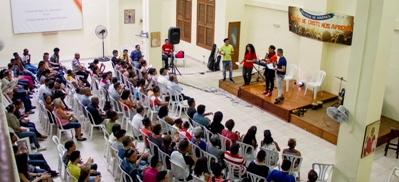
Jan 27, 2017 | Non categorizzato
The celeb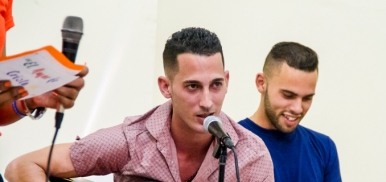 ration of the “Week of Prayer for Unity of Christians” at Havana was highlighted by a particular moment, the Ecumenical Youth Festival, at its third edition. Created with the aim of encouraging a more active participation of the youth in the ecumenical movement, the festival project began to take shape and became an annual meeting of young Christians of Havana. The “Week of Prayer” was enlivened by the youth sectors of the Focolare Movement, Community of Sant’Egidio and Council of Churches of Cuba. Inspired by this year’s “Christ’s love compels us” (2 Cor 5, 14-20), which was also the festival’s motto, the programme of dance, music, and drama staged in this edition saw the participation of about 150 youths of various communities of different Christian denominations. The meeting began on Sunday, 22 January, in the Headquarters of the Community of Sant’Egidio, in the historical centre of the Cuban capital. The representatives of the Cuban Council of Churches also took part in the event, along with Bishop Juan García, Archbishop of Havana, who in his brief greeting, encouraged the youths to see themselves as members of a sole body, a sole family.
ration of the “Week of Prayer for Unity of Christians” at Havana was highlighted by a particular moment, the Ecumenical Youth Festival, at its third edition. Created with the aim of encouraging a more active participation of the youth in the ecumenical movement, the festival project began to take shape and became an annual meeting of young Christians of Havana. The “Week of Prayer” was enlivened by the youth sectors of the Focolare Movement, Community of Sant’Egidio and Council of Churches of Cuba. Inspired by this year’s “Christ’s love compels us” (2 Cor 5, 14-20), which was also the festival’s motto, the programme of dance, music, and drama staged in this edition saw the participation of about 150 youths of various communities of different Christian denominations. The meeting began on Sunday, 22 January, in the Headquarters of the Community of Sant’Egidio, in the historical centre of the Cuban capital. The representatives of the Cuban Council of Churches also took part in the event, along with Bishop Juan García, Archbishop of Havana, who in his brief greeting, encouraged the youths to see themselves as members of a sole body, a sole family.  This year, the event was characterised by a family atmosphere which was tangible in all the various activities. It was not only a show where every church or community performed its piece of the festival. But it was an event accomplished by people who considered one another more and more as brothers, thanks to the relationship established during the years, between one festival and the other, through meetings, dinners, celebrations and mutual help. The group that led the festival was composed of Catholics, Baptists and Pentecostals; the choir was formed by youths of various churches, and accompanied the songs presented by a Catholic. The theatre piece was created by a Pentecostal youth and performed by a group of Catholic girls. «The desire and decision to live unity is already a reality,» one of the participants said. At the end of the programme, the idea that spontaneously came up was the decision “to hold the next festival in a public theatre.” This expressed the desire to testify before others, about the experience of unity concretely lived. From Havana, 22 January 2017
This year, the event was characterised by a family atmosphere which was tangible in all the various activities. It was not only a show where every church or community performed its piece of the festival. But it was an event accomplished by people who considered one another more and more as brothers, thanks to the relationship established during the years, between one festival and the other, through meetings, dinners, celebrations and mutual help. The group that led the festival was composed of Catholics, Baptists and Pentecostals; the choir was formed by youths of various churches, and accompanied the songs presented by a Catholic. The theatre piece was created by a Pentecostal youth and performed by a group of Catholic girls. «The desire and decision to live unity is already a reality,» one of the participants said. At the end of the programme, the idea that spontaneously came up was the decision “to hold the next festival in a public theatre.” This expressed the desire to testify before others, about the experience of unity concretely lived. From Havana, 22 January 2017
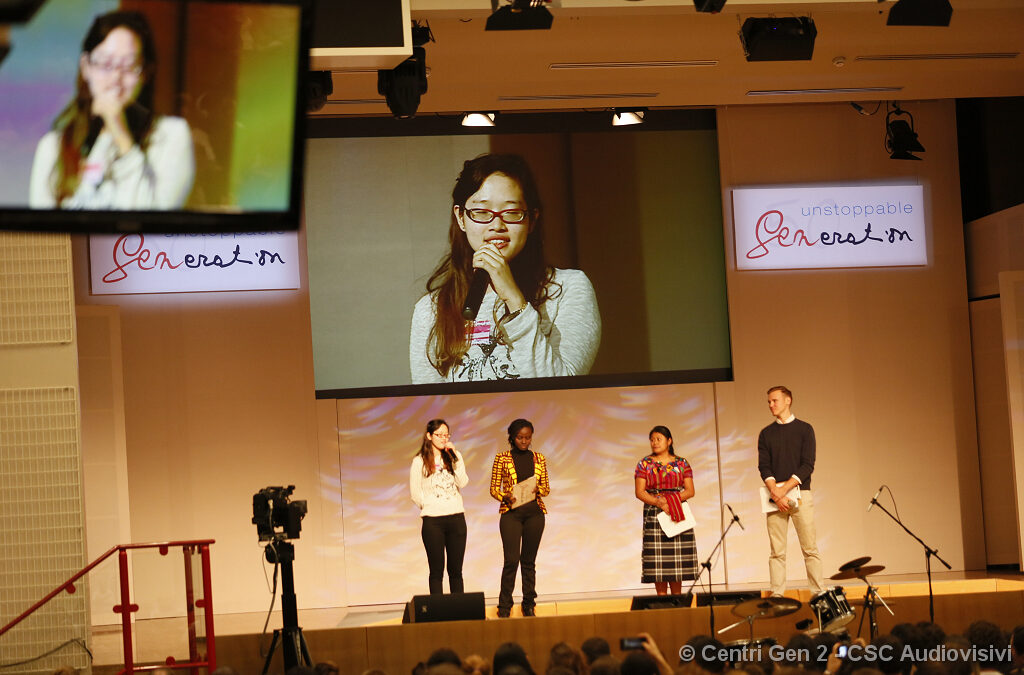
Jan 25, 2017 | Non categorizzato
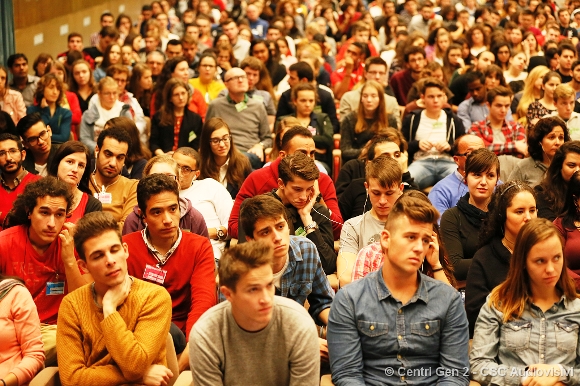 “I lost my father when I was six years old. He died during the war,” says Ivona from Croatia. “That was a hard time in my life that caused me to become closed in myself. In 2003 I met the Focolare Movement and I experienced an atmosphere of love and joy, and I found the strength to face everything and love life even when it was difficult. On New Year’s Eve, at the age of 13, had a fainting spell and ended up in hospital. While waiting for the results of the tests, I suddenly noticed a small rosary in my hand. When I think of it now, I believe that it may have been a sign from God because of what I would have to go through. I was diagnosed with a form of emotional epilepsy resulting from the trauma of my father’s death. I cried for two night. One evening as I was praying the rosary, I felt that I wasn’t alone, that Jesus understood my pain. I seemed to understand the meaning of Chiara Lubich’s words about the moment of Jesus’s abandonment on the cross: ‘What is His is mine and nothing else. Universal suffering is His and therefore mine . . . What hurts me is mine . . . Mine is the suffering of the soul beside me – that’s my Jesus.’ From that moment on my life went ahead in peace and joy, but mostly I was living it with Jesus. Through the illness, I experienced that Jesus Forsaken has illumined every darkness, as Chiara says, and accompanied every solitude. I accepted my illness and felt loved by Him.”
“I lost my father when I was six years old. He died during the war,” says Ivona from Croatia. “That was a hard time in my life that caused me to become closed in myself. In 2003 I met the Focolare Movement and I experienced an atmosphere of love and joy, and I found the strength to face everything and love life even when it was difficult. On New Year’s Eve, at the age of 13, had a fainting spell and ended up in hospital. While waiting for the results of the tests, I suddenly noticed a small rosary in my hand. When I think of it now, I believe that it may have been a sign from God because of what I would have to go through. I was diagnosed with a form of emotional epilepsy resulting from the trauma of my father’s death. I cried for two night. One evening as I was praying the rosary, I felt that I wasn’t alone, that Jesus understood my pain. I seemed to understand the meaning of Chiara Lubich’s words about the moment of Jesus’s abandonment on the cross: ‘What is His is mine and nothing else. Universal suffering is His and therefore mine . . . What hurts me is mine . . . Mine is the suffering of the soul beside me – that’s my Jesus.’ From that moment on my life went ahead in peace and joy, but mostly I was living it with Jesus. Through the illness, I experienced that Jesus Forsaken has illumined every darkness, as Chiara says, and accompanied every solitude. I accepted my illness and felt loved by Him.” 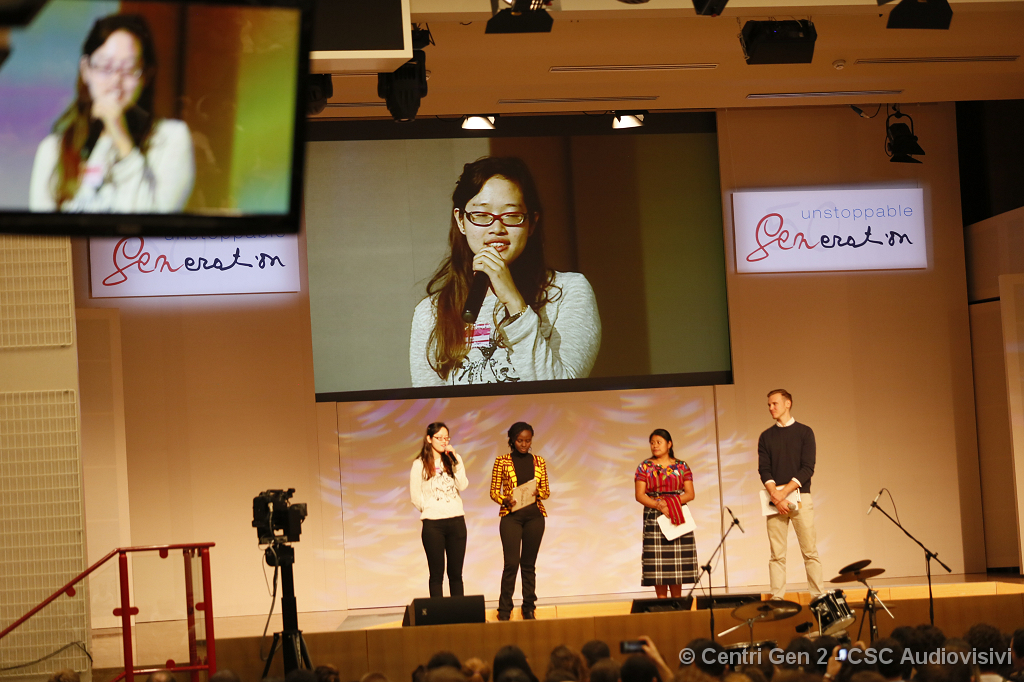 “I’m Zin from Myanmar and I’m a Buddhist Gen. I’ve been at the Gen School in Montet, Switzerland since September. Whenever I tell people that I’m a Buddhist, they all ask me what it’s like to live with the other Gen who are all Christians. It’s easy for me to accept that we follow different religions. It’s only when the other Gen pray or go to mass that I realize there’s a difference. In all the rest we’re the same – sisters living in the same house. We like to love one another in accordance with the way that each one of us understands Love: in Buddhism it’s mostly a matter of compassion, politeness and forgetting oneself. For Christians it’s ‘love of neighbhbour’, ‘love of enemy’ ‘mutual love’ ‘love for Jesus Forsaken’. While noting the diversity in our manner of expressing love, striving to ‘be love’ as our common goal leads us to experience unity.” “I’m Lilia Mayrleny from the Maya Kaqchikel ethnic community in Guatemala, originally from the Patzun people. I’m a Kaqchikel/Spanish bilingual early childhood teacher. Kazchikel is my native language. My country is multi-cultural and bi-lingual. It’s multi-cultural because it’s comprised of four different cultures: Maya, Garifuna, Xinca and Ladino; and it’s multi-lingual because we speak 22 Maya languages. I met the Focolare Movement at the Gen4 meetings when I was a child. I try to bring the ideal of unity into my daily life. I study at university thanks to my parents who also live the Focolare spirituality and support my studies. This is a great conquest, because not all women in my community are able to pursue their studies because of the sexist culture we live in. In Maya culture things like truth, the rule of law, love and respect are cherished. At times I felt very alone without any answers to my questions. But, by trying to live the Gospel I discovered that sorrows and pain, disapointments and doubts, weaknesses, unexpected surprises and all the trials of life, including deception are the many different guises of Jesus who suffered the abandonment on the cross. Whenever I manage to recognize and love him, the difficult situations are transfigured and peace blossoms in me.”
“I’m Zin from Myanmar and I’m a Buddhist Gen. I’ve been at the Gen School in Montet, Switzerland since September. Whenever I tell people that I’m a Buddhist, they all ask me what it’s like to live with the other Gen who are all Christians. It’s easy for me to accept that we follow different religions. It’s only when the other Gen pray or go to mass that I realize there’s a difference. In all the rest we’re the same – sisters living in the same house. We like to love one another in accordance with the way that each one of us understands Love: in Buddhism it’s mostly a matter of compassion, politeness and forgetting oneself. For Christians it’s ‘love of neighbhbour’, ‘love of enemy’ ‘mutual love’ ‘love for Jesus Forsaken’. While noting the diversity in our manner of expressing love, striving to ‘be love’ as our common goal leads us to experience unity.” “I’m Lilia Mayrleny from the Maya Kaqchikel ethnic community in Guatemala, originally from the Patzun people. I’m a Kaqchikel/Spanish bilingual early childhood teacher. Kazchikel is my native language. My country is multi-cultural and bi-lingual. It’s multi-cultural because it’s comprised of four different cultures: Maya, Garifuna, Xinca and Ladino; and it’s multi-lingual because we speak 22 Maya languages. I met the Focolare Movement at the Gen4 meetings when I was a child. I try to bring the ideal of unity into my daily life. I study at university thanks to my parents who also live the Focolare spirituality and support my studies. This is a great conquest, because not all women in my community are able to pursue their studies because of the sexist culture we live in. In Maya culture things like truth, the rule of law, love and respect are cherished. At times I felt very alone without any answers to my questions. But, by trying to live the Gospel I discovered that sorrows and pain, disapointments and doubts, weaknesses, unexpected surprises and all the trials of life, including deception are the many different guises of Jesus who suffered the abandonment on the cross. Whenever I manage to recognize and love him, the difficult situations are transfigured and peace blossoms in me.”
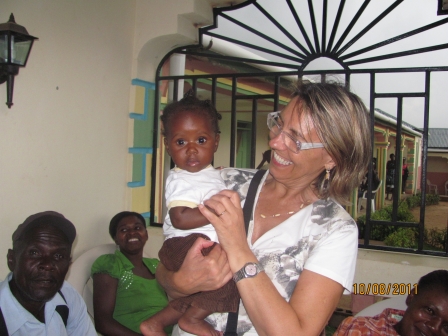
Jan 24, 2017 | Non categorizzato
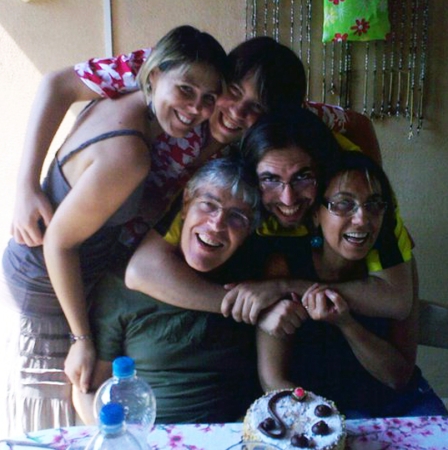 Fiorella: “Right from the start I found that Andrea was an atheist and very popular with the girls. I decided in my heart that it was better to let him go. But then in the disco I always found myself in his arms.” Andrea: “Fiorella was really one of the many. Before telling her – to my own great surprise – that I might actually love her, two years went by.” Fiorella: “I was aware that the relationship wasn’t going anywhere. There wasn’t dialogue and we didn’t make any plans. I had become Andrea’s shadow, without personanlity or dreams. Disappointed I decided to leave him. To evade him, I changed jobs and moved to another city, but I soon began to feel alone and full of sadness. One morning, nearly desperate, I found myself in the doorway of a small church, yelling out why to that God whom I had left for some time. When I job contract ended, I returned home to my relatives. A few days later, a friend whom I hadn’t seen in a while couldn’t wait to talk to me about God, and invited me to a several-day gathering with people who were trying to live the Gospel. As I stepped into the hall I was struck by a sign they had hung: “God is Love”. I wondered how God could love someone like me with my heavy make-up, heels size 12 and fiery red hair. But right from the first day I felt his presence, I knew that I had discovered what I was always looking for, and I ran to pour out all my miseries in the confessional with the intention of beginning to live the Gospel. After that first “Mariapolis” the Eucharist became the vital force of my life.” Andrea:”Fiorella was changed. Now she talked, but what’s worse – at least from my point of view back then – she talked about God. Trying to be tollerant, I decided not to dump her, but I was jealous of this God who was stealing her from me. I was struck by her serenity, her enjoyment of life, her renewed love for me that filled my heart. And what if she really loved me? Surprised at myself I even reached the point of asking her to marry me, even with the understanding of doing it in church. Afterwards, an accident at work left me immobile. The only diversion was visiting those families that Fiorella began to get together with. As soon as I could, I decided to visit one of them to find out the reason for this interest in me. We talked about everything, even the faith until three o’clock in the morning. I was fascinated. “These people are serious about it!” I said to myself, I want to live like them too. I want to be the first to love too.” One Saturday I found the sink filled with dishes. Fiorella was out at work. I closed the blinds so my neighbors couldn’t see me and began to wash the dishes to show her my love in a concrete way. I even tried to iron, although it took me two hours to press one shirt. And as I did all this I began to notice a certainty blossoming inside me: God exists, God is Love. With this new faith I suddenly felt the need to pray. I told Fiorella and suggested we do it together. With a bit of embarrassment and the lights turned off, each of us on our own side of the bed, that night we prayed together for the first time.”
Fiorella: “Right from the start I found that Andrea was an atheist and very popular with the girls. I decided in my heart that it was better to let him go. But then in the disco I always found myself in his arms.” Andrea: “Fiorella was really one of the many. Before telling her – to my own great surprise – that I might actually love her, two years went by.” Fiorella: “I was aware that the relationship wasn’t going anywhere. There wasn’t dialogue and we didn’t make any plans. I had become Andrea’s shadow, without personanlity or dreams. Disappointed I decided to leave him. To evade him, I changed jobs and moved to another city, but I soon began to feel alone and full of sadness. One morning, nearly desperate, I found myself in the doorway of a small church, yelling out why to that God whom I had left for some time. When I job contract ended, I returned home to my relatives. A few days later, a friend whom I hadn’t seen in a while couldn’t wait to talk to me about God, and invited me to a several-day gathering with people who were trying to live the Gospel. As I stepped into the hall I was struck by a sign they had hung: “God is Love”. I wondered how God could love someone like me with my heavy make-up, heels size 12 and fiery red hair. But right from the first day I felt his presence, I knew that I had discovered what I was always looking for, and I ran to pour out all my miseries in the confessional with the intention of beginning to live the Gospel. After that first “Mariapolis” the Eucharist became the vital force of my life.” Andrea:”Fiorella was changed. Now she talked, but what’s worse – at least from my point of view back then – she talked about God. Trying to be tollerant, I decided not to dump her, but I was jealous of this God who was stealing her from me. I was struck by her serenity, her enjoyment of life, her renewed love for me that filled my heart. And what if she really loved me? Surprised at myself I even reached the point of asking her to marry me, even with the understanding of doing it in church. Afterwards, an accident at work left me immobile. The only diversion was visiting those families that Fiorella began to get together with. As soon as I could, I decided to visit one of them to find out the reason for this interest in me. We talked about everything, even the faith until three o’clock in the morning. I was fascinated. “These people are serious about it!” I said to myself, I want to live like them too. I want to be the first to love too.” One Saturday I found the sink filled with dishes. Fiorella was out at work. I closed the blinds so my neighbors couldn’t see me and began to wash the dishes to show her my love in a concrete way. I even tried to iron, although it took me two hours to press one shirt. And as I did all this I began to notice a certainty blossoming inside me: God exists, God is Love. With this new faith I suddenly felt the need to pray. I told Fiorella and suggested we do it together. With a bit of embarrassment and the lights turned off, each of us on our own side of the bed, that night we prayed together for the first time.”  Fiorella: “After twelve years of milestones and setbacks new beginnings and many joys because of the new love that was growing between us, and with the birth of our two children, Maria Giovanna and Ivan, we received an invitation to move to Honduras to help support the nascent Focolare community. Jesus was asking our family to follow Him, giving up our house, our job, our relatives. A totally unknown world was awaiting us in Tegucigalpa with different customs, language and culture, along with the difficult life of the Honduran people who were knocking at our door each day. We entered so deeply into “making ourselves one” and being immersed in their lives in a deep experience of inculturation. The fruits of evangelization were many: vocations, marriages convalidated, families put together again, people coming back to God and the growth of brotherhood. After eight years we left behind a community that had been built piece by piece, based on concrete love that we tried to show and drew in our children into who, in the meantime, had become three. Andrea: “In fact, our on Juan Diego was born while we were in Honduras. We named him in honour of the Virgin of Guadalupe to whom we continue to entrust the so generous people that changed our life.”
Fiorella: “After twelve years of milestones and setbacks new beginnings and many joys because of the new love that was growing between us, and with the birth of our two children, Maria Giovanna and Ivan, we received an invitation to move to Honduras to help support the nascent Focolare community. Jesus was asking our family to follow Him, giving up our house, our job, our relatives. A totally unknown world was awaiting us in Tegucigalpa with different customs, language and culture, along with the difficult life of the Honduran people who were knocking at our door each day. We entered so deeply into “making ourselves one” and being immersed in their lives in a deep experience of inculturation. The fruits of evangelization were many: vocations, marriages convalidated, families put together again, people coming back to God and the growth of brotherhood. After eight years we left behind a community that had been built piece by piece, based on concrete love that we tried to show and drew in our children into who, in the meantime, had become three. Andrea: “In fact, our on Juan Diego was born while we were in Honduras. We named him in honour of the Virgin of Guadalupe to whom we continue to entrust the so generous people that changed our life.”
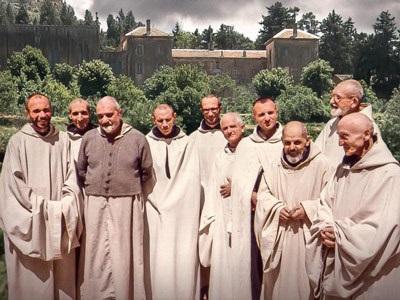
Jan 23, 2017 | Focolare Worldwide, Senza categoria
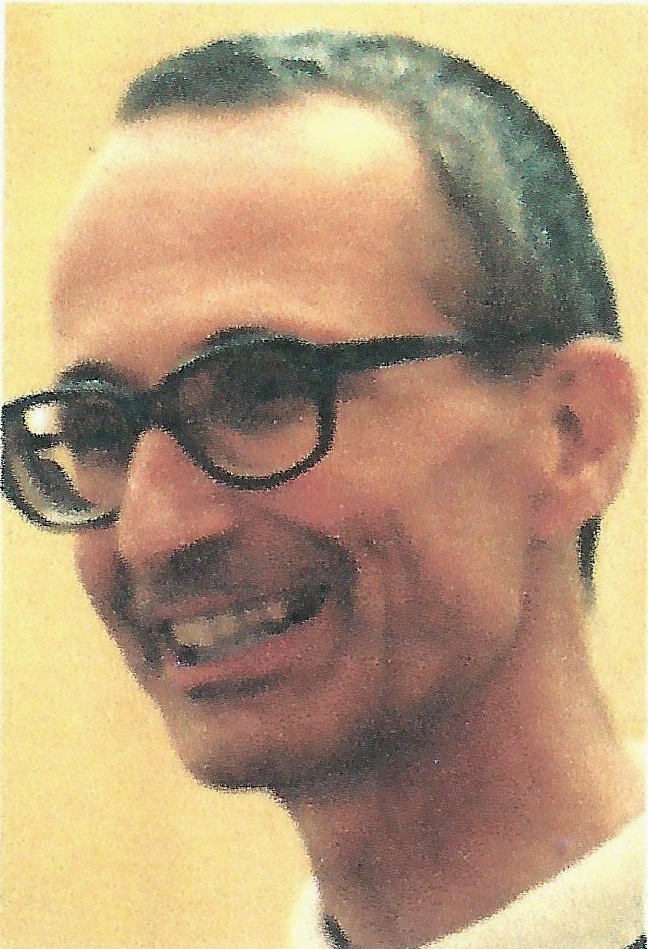 I came across a letter of Fr. Christian de Chergé a few days ago, on his 20th death anniversary. Christian was the Prior of the community of Trappist monks of the monastery of Nostra Signora dell’Atlas in Tibhirine (90 km from Algiers). In 1996, he and six other monks were kidnapped and then killed. On 1 August, Bishop Pierre Claverie, the Bishop of Orano was killed. That was really a “black decade,” as people called the civil war that exploded in the1990s. The monks were French and like the other “foreigners” were the direct targets of the “ mountain brothers,” name that referred to all those who had gone into hiding to take up their arms following the annulment of the 1992 elections. The Islamic Salvation Front, a political party that was dispersed and declared illegal, was about to win the elections. In my mind I often see their smiling faces, during those moments we lived together. We all took part in that particular vocation of the Church in that country, to which we felt we had been sent to testify to the Gospel, at the service of those people. It was a simple, poor Church, but its testimony shone in the hearts of many friends, mostly Muslims. Already then in Algiers, 99.99% of the population followed Islam. The Archbishop of Algiers, Paul Desfarges, said that, “The Church is for the people, a Church of Encounters.” But going back to the letter of 3 December 1994, it seemed to me like meeting Christian once again, or one of the monks in our focolare house in Tlemcen, where they used to spend a night, to then resume the journey towards the monastery they were about to found in Fèz, Morocco. Those were evenings of intense dialogue and joy of getting together, feeling like brothers and of sharing and understanding, in this mutual commitment toward the people that hosted us. Even if we had different callings, our hearts beat in unison.
I came across a letter of Fr. Christian de Chergé a few days ago, on his 20th death anniversary. Christian was the Prior of the community of Trappist monks of the monastery of Nostra Signora dell’Atlas in Tibhirine (90 km from Algiers). In 1996, he and six other monks were kidnapped and then killed. On 1 August, Bishop Pierre Claverie, the Bishop of Orano was killed. That was really a “black decade,” as people called the civil war that exploded in the1990s. The monks were French and like the other “foreigners” were the direct targets of the “ mountain brothers,” name that referred to all those who had gone into hiding to take up their arms following the annulment of the 1992 elections. The Islamic Salvation Front, a political party that was dispersed and declared illegal, was about to win the elections. In my mind I often see their smiling faces, during those moments we lived together. We all took part in that particular vocation of the Church in that country, to which we felt we had been sent to testify to the Gospel, at the service of those people. It was a simple, poor Church, but its testimony shone in the hearts of many friends, mostly Muslims. Already then in Algiers, 99.99% of the population followed Islam. The Archbishop of Algiers, Paul Desfarges, said that, “The Church is for the people, a Church of Encounters.” But going back to the letter of 3 December 1994, it seemed to me like meeting Christian once again, or one of the monks in our focolare house in Tlemcen, where they used to spend a night, to then resume the journey towards the monastery they were about to found in Fèz, Morocco. Those were evenings of intense dialogue and joy of getting together, feeling like brothers and of sharing and understanding, in this mutual commitment toward the people that hosted us. Even if we had different callings, our hearts beat in unison.  That atmosphere of danger surrounding us, encouraged us to go ahead. In fact, there was talk about a possible momentous departure of the members of the focolare of Tlemcen, which then did not occur. And Christian had written: «We all thought that you would stay longer to testify to a convivial offer, a boundless sharing of life, and a friendly openness that enables our hearts to vibrate in unison beyond the barriers of religious affiliations. You made the message of the Gospel your very own and you have deeply imprinted this message among us. And we rejoice with you for this greater humanity which your Charism has given to our Church. It was such a joy to meet at your “focolare” house. Many monks were able to make use of your hospitality when they passed through on their way to Fez. All of us still savour the thought of experiencing it all again! In these times we all need to be able to count on this “fire” kept alive in the common room. It will be a bit colder at Christmas if you will no longer be here… Our lives are in God’s hands… and our motives to remain, conform to those that have allowed us to live here. For you, as for us, the situation has not changed. THANKS once again to each of you and our fraternal communion today and for always. Christian». We had talked about the courage to remain… but for those who, like us had lived that harsh situation in person, I would rather speak of the courage to remain faithful to a calling and share it with a section of humanity, which we already felt an integral part of. It was a Fidelity of love. In the hearts of those who knew the monks, Bishop Claverie, or the other nuns and religious killed in those years in Algiers, they continue to speak to us of the Gospel lived and deep friendships with a people they had made their own. Giorgio Antoniazzi
That atmosphere of danger surrounding us, encouraged us to go ahead. In fact, there was talk about a possible momentous departure of the members of the focolare of Tlemcen, which then did not occur. And Christian had written: «We all thought that you would stay longer to testify to a convivial offer, a boundless sharing of life, and a friendly openness that enables our hearts to vibrate in unison beyond the barriers of religious affiliations. You made the message of the Gospel your very own and you have deeply imprinted this message among us. And we rejoice with you for this greater humanity which your Charism has given to our Church. It was such a joy to meet at your “focolare” house. Many monks were able to make use of your hospitality when they passed through on their way to Fez. All of us still savour the thought of experiencing it all again! In these times we all need to be able to count on this “fire” kept alive in the common room. It will be a bit colder at Christmas if you will no longer be here… Our lives are in God’s hands… and our motives to remain, conform to those that have allowed us to live here. For you, as for us, the situation has not changed. THANKS once again to each of you and our fraternal communion today and for always. Christian». We had talked about the courage to remain… but for those who, like us had lived that harsh situation in person, I would rather speak of the courage to remain faithful to a calling and share it with a section of humanity, which we already felt an integral part of. It was a Fidelity of love. In the hearts of those who knew the monks, Bishop Claverie, or the other nuns and religious killed in those years in Algiers, they continue to speak to us of the Gospel lived and deep friendships with a people they had made their own. Giorgio Antoniazzi

 Brazil is a land of contradictions, the emblem of joy, hospitality, folklore, music, pristine nature, beaches, luxorious forests and metropolises oon the one hand. But on the other, like many countries in the world, Brazil is a land of contrasts, criminality and social inequality. Drug traffiking in the city represents a real wound on society that inevitably leads to armed conflicts. In addition, the murder rate among women is high, prostitution, lack of health care, child labour, low level of education, and the spread of slave labour generates high levels of inenquality as in the favellas and in the outlying districts of big cities. Health care and education are not garunteed and young people can’t look forward to an education and a job. Few escape the clutches of cime, thanks mostly to a few public policies and the work of social aid organizations such as parishes and Christian church groups that are really the only ones who have the fate of the poor at heart. Even in my own city with its 800,000 citizens, children between the ages of 13 and 17 have been mudered because of their involvement with drugs. My desire to love my neighbor, to give myself especially to the people that have been rejected by society, led me to be involved for five years, in the spirit of the Focolare, with a social project years in the diocese of Teresina: “The New Youth Community Centre.”
Brazil is a land of contradictions, the emblem of joy, hospitality, folklore, music, pristine nature, beaches, luxorious forests and metropolises oon the one hand. But on the other, like many countries in the world, Brazil is a land of contrasts, criminality and social inequality. Drug traffiking in the city represents a real wound on society that inevitably leads to armed conflicts. In addition, the murder rate among women is high, prostitution, lack of health care, child labour, low level of education, and the spread of slave labour generates high levels of inenquality as in the favellas and in the outlying districts of big cities. Health care and education are not garunteed and young people can’t look forward to an education and a job. Few escape the clutches of cime, thanks mostly to a few public policies and the work of social aid organizations such as parishes and Christian church groups that are really the only ones who have the fate of the poor at heart. Even in my own city with its 800,000 citizens, children between the ages of 13 and 17 have been mudered because of their involvement with drugs. My desire to love my neighbor, to give myself especially to the people that have been rejected by society, led me to be involved for five years, in the spirit of the Focolare, with a social project years in the diocese of Teresina: “The New Youth Community Centre.”  The project, which is geared towards at-risk children and teenagers, tries to provide alternative opportunities. Eighty children and teenagers (betweeen the ages of 5 and 17) attend music, dance and theatre classes. They receive tutoring and are provided with hot meals, since they often don’t find food in their homes. Their lives change when they come into contact with people who welcome and care for them. I also tried to be involved, listening to many young people who have shared their suffering with me. One boy told me about his drug problem and asked me to help him out of the tunnel. Another told me how he steals in order to get money. We often involve the professionals who work there, such as psychologists and social workers. Now many of the children are grown, they study and have found honest work. Others continue to arrive in search of an opportunity at a better life, of being loved and cared for. One of them who had been abandoned by his father, called me “Dad” and so I took on this role One boy had suffered various forms of violence and neglect. We found a way to channel his energy, by introducing him to judo, and that changed him for the better. He became a source of pride for all of us who had helped him. But one day he didn’t show up at the centre. We learned that he had become involved in some ugly ways and, one day, as he sat in front of his house was murdered. He had just turned 15. It was a big suffering for all of us, also for me because of the friendship we had built. Many other teenagers suffer the same fate. The project foresees also moments of training for educators and young people, according to the Chiara Lubich‘s spirituality, with monthly meetings of the Word of Life. What I got out of this experience is that continuity is required for recovering these boys, working in synchrony with the State, public institutions of education and health, with civil society, and with the church. To win this challenge we need to create networks and dialogue at every level: personal, group, community, all the way to the highest levels of society. But it all begins with me, moving beyond myself and going out to encounter the many peripheries. We’ve already begun.
The project, which is geared towards at-risk children and teenagers, tries to provide alternative opportunities. Eighty children and teenagers (betweeen the ages of 5 and 17) attend music, dance and theatre classes. They receive tutoring and are provided with hot meals, since they often don’t find food in their homes. Their lives change when they come into contact with people who welcome and care for them. I also tried to be involved, listening to many young people who have shared their suffering with me. One boy told me about his drug problem and asked me to help him out of the tunnel. Another told me how he steals in order to get money. We often involve the professionals who work there, such as psychologists and social workers. Now many of the children are grown, they study and have found honest work. Others continue to arrive in search of an opportunity at a better life, of being loved and cared for. One of them who had been abandoned by his father, called me “Dad” and so I took on this role One boy had suffered various forms of violence and neglect. We found a way to channel his energy, by introducing him to judo, and that changed him for the better. He became a source of pride for all of us who had helped him. But one day he didn’t show up at the centre. We learned that he had become involved in some ugly ways and, one day, as he sat in front of his house was murdered. He had just turned 15. It was a big suffering for all of us, also for me because of the friendship we had built. Many other teenagers suffer the same fate. The project foresees also moments of training for educators and young people, according to the Chiara Lubich‘s spirituality, with monthly meetings of the Word of Life. What I got out of this experience is that continuity is required for recovering these boys, working in synchrony with the State, public institutions of education and health, with civil society, and with the church. To win this challenge we need to create networks and dialogue at every level: personal, group, community, all the way to the highest levels of society. But it all begins with me, moving beyond myself and going out to encounter the many peripheries. We’ve already begun. 

 The program will focus on these themes: The absurdity of suffering on an individual and social level Living with suffering The value of suffering There will be input from various geographic regions and from various disciplines: psychology, medicine, philosophy, art, through personal experiences given by people of different age-groups. Bookings can be made through the Centre for Dialogue with Persons of no Religious Affiliation Focolare Movement, Via Frascati 306, 00040 Rocca di Papa (Rome), Italy Email:
The program will focus on these themes: The absurdity of suffering on an individual and social level Living with suffering The value of suffering There will be input from various geographic regions and from various disciplines: psychology, medicine, philosophy, art, through personal experiences given by people of different age-groups. Bookings can be made through the Centre for Dialogue with Persons of no Religious Affiliation Focolare Movement, Via Frascati 306, 00040 Rocca di Papa (Rome), Italy Email: 




 ration of the “Week of Prayer for Unity of Christians” at Havana was highlighted by a particular moment, the Ecumenical Youth Festival, at its third edition. Created with the aim of encouraging a more active participation of the youth in the ecumenical movement, the festival project began to take shape and became an annual meeting of young Christians of Havana. The “Week of Prayer” was enlivened by the youth sectors of the
ration of the “Week of Prayer for Unity of Christians” at Havana was highlighted by a particular moment, the Ecumenical Youth Festival, at its third edition. Created with the aim of encouraging a more active participation of the youth in the ecumenical movement, the festival project began to take shape and became an annual meeting of young Christians of Havana. The “Week of Prayer” was enlivened by the youth sectors of the 





